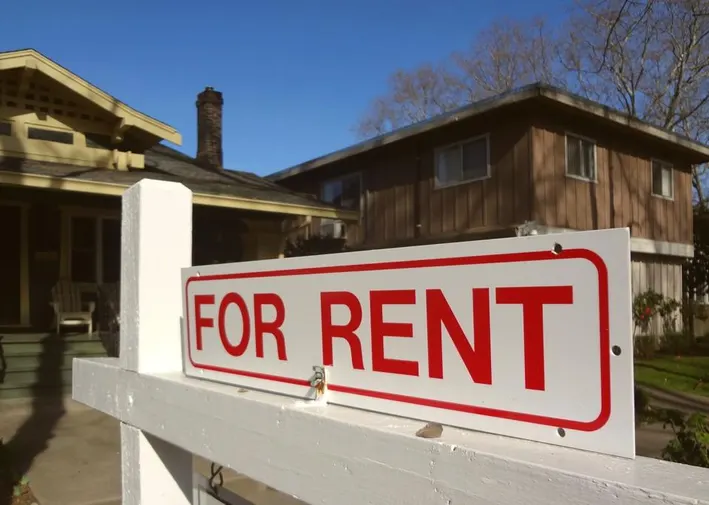Rent increases can be significant sources of stress and financial uncertainty for renters. In Colorado, while there are no statewide rent control laws, there are still regulations that protect tenants’ rights. It’s essential for Colorado renters to understand their rights and the legal framework surrounding rent increases.
Colorado is a state that generally favors landlords in the landlord-tenant relationship. One of the most significant ways this manifests is the state’s stance on rent control. Currently, Colorado does not have any statewide rent control measures in place. Additionally, state law prohibits local governments (cities and counties) from enacting their own rent control ordinances. This means that landlords have broad freedom to increase rents as they see fit.
While this might seem daunting for tenants, it’s crucial to remember that there are still laws regulating how and when landlords are allowed to increase rent. Understanding these regulations will empower you as a tenant and help you navigate any potential rent increases.
How Much Can Landlords Raise Rent?
In Colorado, there are no statewide laws that put a cap or percentage limit on how much landlords can raise rent. This means that, technically, a landlord could increase rent by a significant amount. However, landlords are generally expected to keep their increases reasonable:
- Market rates: Landlords will often consider prevailing market rates in the area when deciding on increases.
- Tenant retention: Unreasonable rent hikes may lead to good tenants leaving, resulting in vacancies and loss of income for the landlord.
Notice Requirements for Rent Increases
Colorado landlords are required to provide tenants with adequate written notice before implementing any rent increase. The specific notice period depends on your lease type:
- Month-to-month leases: For month-to-month leases, landlords must provide at least 30 days’ written notice of the rent increase.
- Longer-term leases: If you have a fixed-term lease (e.g., a one-year lease), the notice requirements may be outlined in the lease agreement itself. It’s essential to review your lease carefully to understand these terms.
Protections for Tenants
While rent increases might seem like tenants have little recourse, there are important protections in place:
- Anti-discrimination: Landlords cannot increase rent based on discriminatory factors protected under the Fair Housing Act, such as race, religion, national origin, sex, familial status, or disability.
- Anti-retaliation: Landlords cannot raise your rent in retaliation for exercising your legal rights as a tenant, like reporting health or safety violations or joining a tenants’ union.
Resources for Tenants Facing Large Increases
If you are facing what you believe to be an unreasonable rent increase, there are resources available:
- Colorado Legal Services: (https://www.coloradolegalservices.org/) – provides legal assistance and information to low-income tenants.
- Local Tenant Organizations: Search for tenant organizations or housing advocacy groups in your area.
- Fair Housing Agencies: If you suspect your rent increase is discriminatory, contact a local Fair Housing agency.
When Landlords Cannot Raise Rent
- During a fixed-term lease: In most cases, landlords cannot raise your rent during the term of a fixed lease agreement unless there is specific language in the lease that allows for it.
- Health and safety violations: If your rental unit has significant health and safety code violations that the landlord has failed to address, they might be prohibited from raising your rent.
Tips for Tenants Facing Rent Increases
Here are some strategies to manage rent increases:
- Negotiate with your landlord: If you believe the rent increase is unreasonable, try to respectfully negotiate with your landlord. Communicate clearly about your concerns, offer your reasoning, and propose a potential compromise.
- Budgeting and planning: Anticipate potential rent increases and incorporate them into your budget. Set aside savings or consider ways to increase your income to accommodate possible rent hikes.
- Seeking legal advice: If you’re facing a particularly large or potentially retaliatory rent increase, do not hesitate to seek legal advice from tenant advocacy organizations or an attorney specializing in landlord-tenant law.
Conclusion
While Colorado lacks statewide rent control, understanding the existing laws around rent increases is vital for tenants to protect their rights. Remember that landlords generally cannot raise rent during fixed-term leases and must provide adequate notice. You are protected from discrimination and retaliation and there are resources available to support you. By being informed and proactive, you can successfully navigate the complexities of rent increases in Colorado.
Sources
- Colorado Landlord Tenant Rental Laws & Rights for 2024 – Tenant Cloud: https://www.tenantcloud.com/laws/landlord-tenant-laws-colorado
- How Much Can a Landlord Raise Rent in Colorado in 2024? – Steadily: https://www.steadily.com/blog/how-much-can-a-landlord-raise-rent-in-colorado
- What You Need to Know About Rent Increase Notices in Colorado – DoorLoop: https://www.doorloop.com/laws/colorado-rent-increase-notice
- Colorado Rent Control Laws (2024) | The Complete Guide – DoorLoop: https://www.doorloop.com/laws/colorado-rent-control-laws
- Colorado Landlord-Tenant Laws for 2024 – Colorado Real Property Management: https://www.coloradorpm.com/colorado-laws-for-landlords/
- When Can the Landlord Raise Your Rent? – Colorado Legal Services: https://www.coloradolegalservices.org/node/343/when-can-landlord-raise-your-rent



